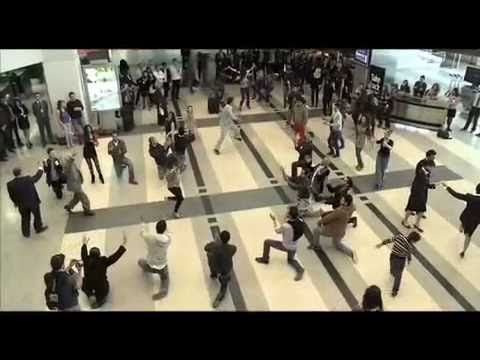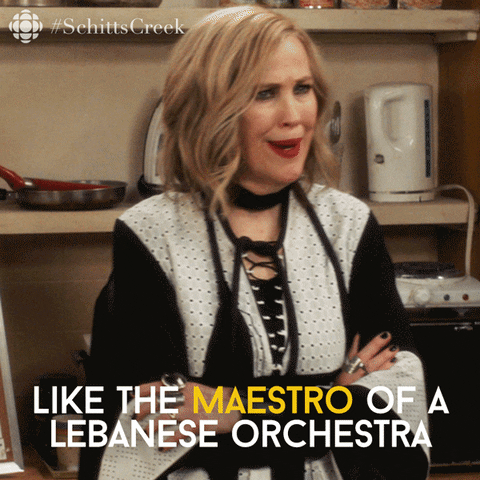There are few things less enticing than finding yourself alone at a wedding.
One of them might be finding yourself alone at a Lebanese wedding—especially if you are not, in fact, Lebanese.
I wrote this piece many years go. So many years that I identified that way, even though my father was born and raised in Lebanon.
I recently admitted to a friend that since October 7th, 2023, I have come to identify more and more Arab—even though I am white, and have more Eastern European blood than Lebanese.
Last week, I got a text in our group of creators working on a film about Lebanon—a film I wrote after my first visit to Beirut, about my father’s childhood there. Our producer asked me and my other two colleagues, both born and raised in Beirut, if everyone’s families were okay. I froze, then checked the news. It was the day most of us could never have imagined in our wildest dystopian nightmares: the day of the pager blasts.
Except almost every day since then has been even more unimaginable.
I’ve been trying to write something since that day. For now, I’ve given up and decided to share this post. It meant a lot to me when I wrote it. And even though so much has changed—the husband is now a wusband, and those children I wrote about never came to be—it means much more to me now.
With love and prayers to all my Arab siblings, uncles, aunts, and cousins, even the ones I will never meet.
There are few things less enticing than finding yourself alone at a wedding.
One of them might be finding yourself alone at a Lebanese wedding—especially if you are not, in fact, Lebanese.
I get asked where I’m from all the time, especially when people see my last name. My father is from Beirut, but his father was Russian. My mother is Hungarian. I don’t speak either language, which one might say is the true definition of Canadian. As a kid, I wouldn’t have have agreed. In the 80s and 90s at least, Canadians, as I understood things, didn’t have labneh for breakfast, or lecsó for dinner. They played hockey, not the classical guitar. They were allowed to date boys before they turned 30.
The bride was the daughter of one of my father’s close friends. My father was away, and my (edit: at the time) husband was snowed under with work, so I was sent as a sort of family emissary. I knew I was going to stand out—I’m not even remotely brown, and have hair that could best be described as “colourless.” Also, I don’t know if you’ve met any Lebanese people, but the word “underdressed” will never be spoken of any of them. Lebs look better going to the grocery store on a Saturday morning than I did at my prom.
But I didn’t realize quite how much of a sore thumb I’d be until I pulled into the church parking lot. A couple strolled past, she in a floor-length silk gown of turquoise, purple and gold; he in a suit tailored so sharply you could use it to slice cucumbers. I looked down at my knee-length dress, borrowed from an Italian friend—the fanciest dress I’ve ever work to a wedding. I took a pew, watching as more Lebanese sashayed into the church and gave any red carpet a run for its money.
Then, I spotted an uncle.
We aren’t technically related. Like many Mediterranean cultures, the Lebanese use “uncle” and “aunt” to refer to one’s parent’s friends. I’ve had these uncles since I was a kid: three Arabic-speaking, pistachio-eating, arak-drinking men who arrived in Ottawa from Beirut at around the same time as my dad. They are some of the kindest people I know. They would give you the shirt off their backs. And since my father is an only child, in Canada, they are my Lebanese family.
“You’re not sitting at our table!” One of the aunts gasped as soon as she saw me. “I don’t know why! It’s HORRIBLE!”
This aunt and uncle stood on either side of me in the pew. Another uncle arrived with his three teenaged daughters, all legs and sequins and patent-leather pumps. The girls lined up in the pew in front of us, and when the bridal procession started, they swung into over-swoon, clutching each other’s hands and snapping photos like paparazzi.
“Oh my GOD,” they kept repeating, as the flower girl entered, then the bridesmaids, and finally the bride and her father. “I’m going to die. I’M GOING TO KILL MYSELF.”
I struggled to keep a straight face, until I looked over at my cousin and saw that he was cracking up also.
Then the Arabic chanting began.
As always, this brought me to another place, although I don’t exactly know where that place would is. I’ve only been to Lebanon once, but I feel connected to it through blood, through stories, through memories not my own. My mother was less involved in her culture as I was growing up, and, not surprisingly, doesn’t have fond memories of a childhood under a Communist regime. But something about the Mediterranean people has always felt right to me, like it’s where I belong. Maybe that’s why I married a Greek. [2024 edit: Maybe that’s why I spend so much time in Turkey. And am making a film about Beirut.]
At the reception, the teenagers invited me to sit at their table, but I felt about a hundred years too old to join them. Awkwardly, I took a seat with another uncle, his wife, his siblings and their spouses. Instantly, a plate of hummus appeared under my nose.
“Where’s your husband?” one of the sisters-in-law demanded.
“Working,” I said, apologetically.
She motioned to hers, who was standing on his chair, belly-dancing and ululating. “I’m envious. Hear, have some kibbeh.”
And that’s I spent the night: continuously being fed, pulled onto the dance floor, and invited on expeditions to the dessert table. I was included in family photos, and recounted tales of recent trips to Beirut. When the bride and groom arrived, everyone rushed to greet them in a giant, circular dance floor explosion, brimming with so much joy that I had to bite my lip to keep from falling apart. I had more fun than at my own wedding.
Driving home later in the night, sweaty, stuffed and exhausted, I thought about my future kids. They’ll be half Greek, a quarter Hungarian, and an eighth Lebanese. I wondered if they’ll feel as weird and out of place as I did. Or is it so common now to be from so many different worlds that they won’t even notice? I’m determined to pass down my cultures to them; determined that they know where their people come from. But what does that actually mean?
I still can’t answer that question. But I do know this: when I teach them to dance the Dabke - the Lebanese dance where everyone holds hands and dances in the same direction - I’ll show them how, before you leave the circle, you have to connect the hands of the people on either side of you. That way, the dance continues on, and the circle is never broken.
If you’ve enjoyed this post, or that video, or falafel, or shish taouk, or just want to do something nice, please sign this petition telling the Prime Minister of Canada to stop arming Israel’s attacks on Lebanon. Or call him, or call your reps. Or protest. Or join the strike on October 1st by refusing to buy, bank, attend school, or work.
It all counts. It all matters.






Beautiful memories, Natalie. Sending love and prayers to your family and friends in Lebanon. Xoxo
A very honest and revealing perspective of our common humanity thank you Nat. More similar than different all of us countries ....